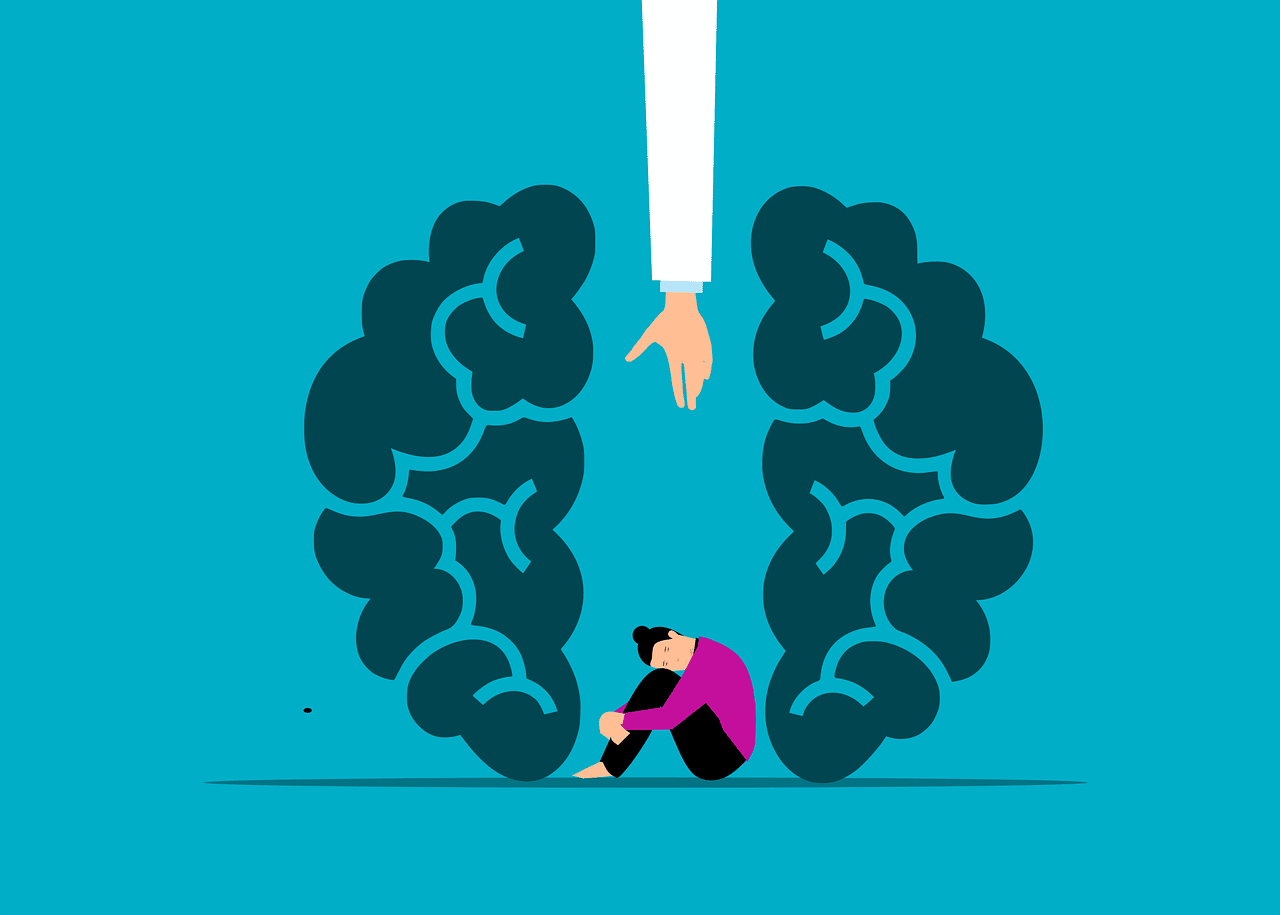Culture
Caregiver burnout: How it affects loved ones of those with mental health disorders
This World Mental Health Day, where we together push society to discuss mental health, we need to pause and also think about caregiver burnout, and the draining impact on them both mentally and financially as they take care of a loved one
“When my grandmother was diagnosed, I felt angry and frustrated at my family because if she were taken earlier, maybe she would have been in a better place right now,” rues Tina when talking about her loved one’s struggles with depression and anxiety. The journey of getting a mental health disorder diagnosis in itself was a huge challenge for Tina since she had to convince her grandfather to take her to a psychiatrist. “He did not listen to me, and that made me feel extremely frustrated. He did not believe that depression exists,” she adds.
While the discourse around mental health in India has gained momentum in the past decade, it remains largely taboo to acknowledge it privately, let alone being discussed publicly. This denial on the part of the family, or in many cases, the patient themselves, contributes not only to the exacerbation of the illness but also an increased burden of care on the first line of defence against mental health issues – the family.
Dr. Satish Ramaiah, medical director of Maarga, a super-speciality psychiatry hospital in Yelahanka, Bengaluru, is quick to point out that the caregivers still remain on the periphery whenever mental health is discussed. “Professional medical support is indeed essential, but one has to understand that during such trying times, one first turns towards the family for seeking resilience,” he says. The role of the family remains indisputably dominant in creating a loving environment and caregiving for patients.
Aakansha is a caregiver whose sibling, Shruti, was diagnosed with schizophrenia in her late 30s. On her sister Shruti’s diagnosis, Aakansha says she felt a sense of sadness but also relief because it explained a lot of her behaviour. It also helped Aakansha separate the sister’s actions from her episodes. “We made an effort to be empathetic even when it was hurtful and damaging. It was almost next to impossible before the diagnosis because one felt that they were behaving in unpleasant and manipulative ways,” she says.
Challenges that caregivers face
However, a major challenge for Aakansha was Shruti’s refusal to accept the diagnosis. She was not open to treatment, be it medication or therapy. Moreover, stigma prevented their family from seeking support elsewhere.
“You don’t need to be diagnosed with something to seek therapy. As individuals, no matter how privileged or not, we have all been through trauma, and it affects the way we function or deal with life on a day-to-day basis and how we show up for ourselves and in the environment around us. Anger, fear, shame, resentment, consent, abusive behaviour all show up in different ways, and while our pop-culture and films tend to show this as entertainment, it deeply seeps into society and how we behave,” she says.
Having a dependent individual with a severe disorder can also be financially challenging. Aakansha explains how her family dealt with it. “Mental health treatments and therapy is very expensive, and no medical insurance covers it without conditions. Severe inpatient services, bills for regular therapy and medication also make it expensive, especially when the patient is a dependent,” she says.
It’s hard to offer treatment when the individual, even if highly intelligent, is unwilling to receive help. “Oftentimes, as caregivers, it’s exhausting and draining for us, so the coping comes from accepting it and taking pockets of time away for ourselves,” she says.
For Aakansha, who has been diagnosed with post-traumatic stress disorder herself, the experience with her sister has opened her eyes to the struggles of those around her, who are suffering and undiagnosed. “We’re facing a shift into a modern and highly digitised world. We haven’t yet dealt with the negative impacts of the past, of certain traditions, patriarchy, different kinds of abuse and the burden of generational trauma. We are perhaps the first generation in the history of human civilisation that is talking about mental health! Which means we all have a lot of work to do, on ourselves and as a society that wishes to progress and develop,” she says.
In Lata’s case, her granddaughter Tina believes that diagnosis is not often enough in itself to help find a cure. “Although medication works wonders, it is not the only thing that can fix mental health disorders. I wish my grandmother would go to therapy. She is extremely non-verbal, which makes it extremely difficult to understand how she feels,” she says.
Tina’s family plays a collective role in supporting Lata. The family engages with her, makes her laugh, and has understood that mental health disorders are nothing alien or something to be stigmatised about. “The whole idea that my family understands that mental health is important has helped us support her. Moreover, now that I know we have a genetic history, we try to ensure that we talk to someone when we do not feel okay, and it’s okay to take professional help,” she says. Tina’s biggest learning from this experience was to always prioritise the person and their narrative.
Dr Satish Ramaiah, who often deals with cases where the caregivers are directly or indirectly affected by the mental health of their loved ones, says being resilient together is important. “Resilience is your ability to adapt to, or come around a particular internal or external roadblock that you’re facing, such that it stops interfering with your functioning, and being able to work at full capacity without being affected by that stress,” he explains.
According to him, the treatment for patients with mental health disorders should be holistic, and family intervention plays a huge role towards the individual’s betterment. “It’s not just about administering medication; it’s about understanding the person, empathising with them, and caring for them the right way, which is a dominant curative factor in treatment,” says Dr. Satish. In his 21-years-of experience, he has come across patients from various backgrounds; with no family support or from close-knit families. However, the extent of family involvement depends on dynamics and whether the relationship with the patient is functional or dysfunctional.
For Esha, her husband Rahul suffers from clinical depression, a diagnosis that initially left her feeling shattered and scared. The responsibility of running her family became hers entirely. Rahul often gets triggered by a crowd, so Esha finds herself making excuses for his absence in public because society’s conditioning and judgment against those with depression is debilitating.
The couple is building a start-up company together, but the severity of the depression has severely inhibited Rahul’s functioning. Domestically too, the family is facing a huge financial crunch. Her life, however, transformed after she came to terms with his condition. “My husband looks normal on the outside, but I know the struggle he is going through everyday,” she says.
For Flarantxa, her chosen family, i.e. her flatmate Sanjana is struggling with bipolar disorder, schizoaffective disorder and borderline personality disorder. Initially, on hearing about the diagnosis, Flarantxa felt afraid of whether she had the bandwidth to be there for her best friend. “Before I understood the diagnosis, it was scary because there were a lot of big terms that I had heard but had never experienced in real life. I felt dread and fear, which over time, have passed away because supporting her was something I needed to do,” she says.
The challenge is to understand what Sanjana needs in that moment since every individual with mental health disorders has different comforts and different triggers. “All of us are dealing with our issues, and having conversations about what’s working and not working for us is extremely helpful. Also, one of the things that are important is understanding the disorder, which is crucial to building that resilience,” says Flarantxa. Slowly, she has built an understanding of how to deal with the diagnosis whilst drawing boundaries that allowed her to live an independent life beyond that of a caregiver. Supporting her flatmate became an opportunity for Flarantxa to come to terms with her own mental health diagnosis and de-stigmatise taking medication and seeking help for it.
Caregiver Burnout
However, Dr Satish warns of caregiver burnout. “At the end of the day, the caregiver is another human being with their own set of vulnerabilities, strengths, and emotions. When a person takes care of someone with a mental illness, it takes a toll on them. They have to try to understand what mental illness is, accept it, deal with the denial and stigma, stand up for the patient, and help them take that journey of treatment. The carer is often the person who is neglected as well,” he says.
Depression affects 30-40% of all caregivers. As a psychiatrist, he has seen caregivers getting no support when they are overwhelmed and recommends their needs be brought into the treatment plan. He recommends that caregivers objectively take a step back to assess whether they are the right person for the job and how they can empower themselves to care for the patients.
Caregivers can also opt for respite care. When a patient with severe mental health disorders is admitted to the hospital for treatment, they should take some time off to take care of her own needs. “Often, carers have spent 30-40 years caring for individuals with severe disorders, leaving no time or space for their own feelings and needs. Daycare centres are also available where patients can be engaged in activities while caregivers look at their own mental health. There are also support groups where they can go and talk about the challenges they’re facing,” he says.
Disclaimer: The views and opinions expressed in this article are those of the authors and do not necessarily reflect the official policy or position of the publication











































Pingback: AI Caregiving Startup LegUp gets ₹2 Cr from BlueBridge Capital
Pingback: Samarpan India’s First CARF-Accredited Rehabilitation Centre